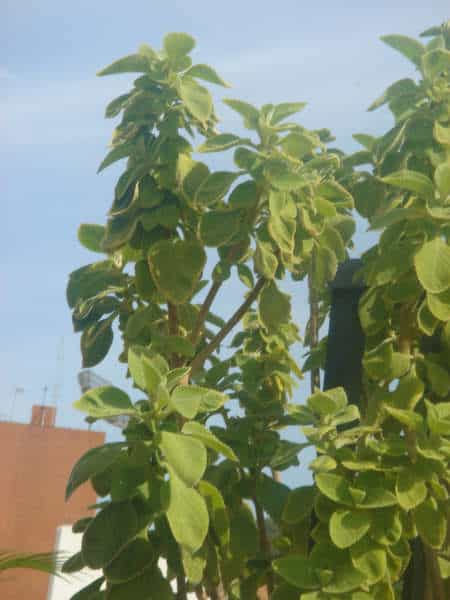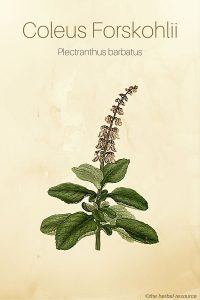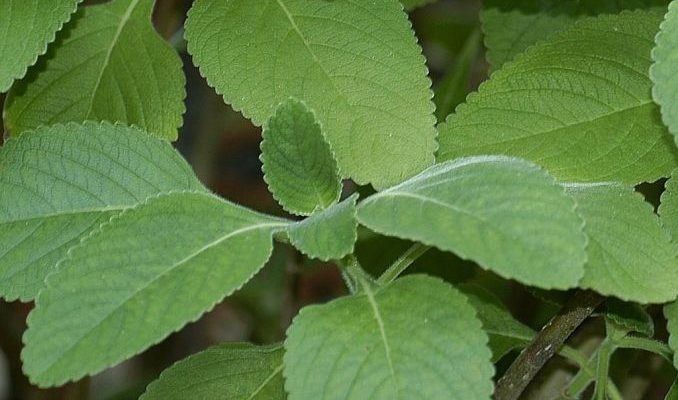Botanical Name: Plectranthus barbatus, Coleus barbatus.
Other Common Names: Coleous, makandi, Indian coleus, false boldo.
Habitat: Coleus is a hardy plant, growing on the dry slopes of the lower Himalayas and the plains in Uttar Pradesh, Northern India.
However, coleus has long been cultivated in India, Thailand and also in other parts of South East Asia.
Description: Coleus is a member of the Lamiaceae family, more commonly known as the mint family. Plants in this group have a stem that is square in shape and are usually extremely fragrant due to their large content of essential oil.
Coleus is a fleshy, perennial herb, which has an aroma similar to camphor; its spiked flowers are typical of the mint family.
Unlike other plants in the Lamiaceae family, the principal part used medicinally is coleus’ pale fibrous roots.
Plant Parts Used: The root.

Therapeutic Uses, Benefits and Claims of Coleus Forskohlii
Coleus is a not a particularly remarkable plant to look at, yet it has a 3000-year history in Ayurvedic medicine and is mentioned in ancient Sanskrit texts as a tonic for a healthy heart and lungs.
Today, coleus is not just a herb for cardiovascular ailments but is increasingly used to assist weight loss by breaking down adipose tissue and preventing production of further fatty tissue.
In addition, coleus mildly stimulates the metabolism by increasing thyroid hormones and increases the secretion of insulin.
These therapeutic indications for coleus are due to its principal active compound, a diterpenoid called forskolin. This is the only plant-derived compound known to directly stimulate the enzyme, adenylate cyclase, and in turn, stimulates cellular cyclic AMP which boosts our metabolism.
Coleus forskohlii preparations used as eye drops are known to reduce eye pressure in glaucoma.
Like all good tonics, coleus directly stimulates digestion and is thought to assist in the absorption of nutrients in the small intestine.
Increased cellular cyclic AMP reduces histamine, making coleus beneficial in the treatment of allergies. Coleus is also a bronchodilator with an antihistamine action, making it useful in treating asthma.
Conditions such as hypothyroidism, eczema, psoriasis are also improved by using coleus, largely due to its ability to increase cyclic AMP.
It is a popular herb for angina and for the health of the heart.
Coleus increases stroke volume, which is the amount of blood pumped with each heartbeat and reduces the risk of blood clots. In addition, the herb lowers high blood pressure by acting to relax the arterial walls.
Indian and Chinese studies in the last two years have isolated a number of diterpenoids in the stem and leaves of coleus forskohlii with a focus on the treatment of gastric cancer and preventing metastatic (secondary) cancers. These have been carried out on animal models with considerable success.
Therapeutic Dosages
Recommended dosage of coleus forskohlii is 50mg two to three times daily.
Potential Side Effects of Coleus Forskohlii
Care should be used when taking coleus with any other medication to control asthma or cardiac disease.
It is essential to consult a health care professional when altering medications and to investigate thoroughly how medications may interact with each other.
For those taking blood pressure and heart medications such as beta-blockers, clonidine, hydralazine, the herb should only be used under the guidance of a physician.
Similarly, blood thinners, including warfarin and heparin require that coleus is taken with caution under a physician’s care.
Supporting References
Foster Steven: Johnson R. Desk Reference to Nature’s Medicine. National Geographic Society. Washington D.C. 2006.
Mishra LC. Scientific Basis for Ayurvedic Therapies. CRC Press. New York. 2003.
Duke, James A.: The Green Pharmacy Herbal Handbook: Your Comprehensive Reference to the Best Herbs for Healing. Rodale Books 2000.
Pole S: Ayurvedic Medicine. Elsevier. Philadelphia. 2006.
Thordur Sturluson
Latest posts by Thordur Sturluson (see all)
- What is the Difference Between Hemp and Marijuana? - June 3, 2019


In reading this article, I found that the product sounded really great and considering it’s use, however in reading this particular sentence, it sounded one should be hesitant, please explain this sentence: “Coleus increases stroke volume, which is the amount of blood pumped with each heartbeat and reduces the risk of blood clots”.
Vicki, good question and I can see where there might be confusion. The “increase of stroke volume” is referring to how much blood the heart pumps with each beat which this reportedly helps with. This is not referencing a medical “stroke” whereby there’s a blockage in an artery. Stroke volume in this sense is a positive thing meaning your heart has to work less hard to pump blood.
This reply sounds very possible cuz I too was concerned with that phrase. I also have a question: I tend to have a resting pulse usually between 54-62. my doctor is not concerned. but I do take a pravastatin for high cholesterol. am I ok to start Forskolii. please advise. thanks
What is the preferred method of application to receive the highest benefit?
Will it help in vision related problems?
What products provide Coleus forskohlii preparations used as eye drops?
Where can I buy this product?